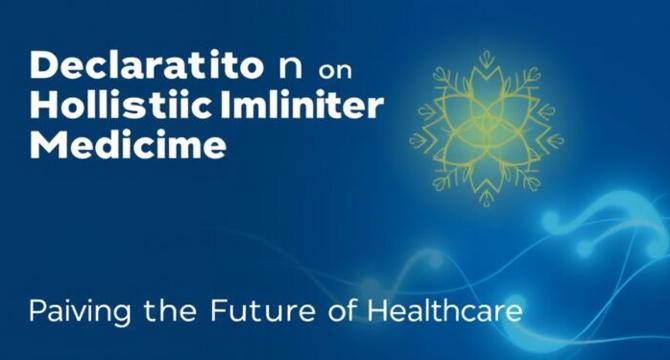Bioengineer
2w
312

Image Credit: Bioengineer
Declaration on Holistic Integrative Medicine: Paving the Future of Healthcare
- Holistic Integrative Medicine (HIM) offers a transformative approach to healthcare, unifying a spectrum of medical practices and philosophies, marking a significant departure from traditional, compartmentalized models of care.
- At the heart of HIM lies the belief that medical knowledge should not be fragmented across disciplines; rather, it advocates for a synthesis of modern medical advancements with timeless healing practices.
- HIM promotes the empowerment of patients by encouraging them to tap into their innate healing abilities while recognizing the critical role of mental and emotional states in the journey toward optimum health.
- Furthermore, HIM champions the principle of minimal intervention, striving to limit the reliance on artificial or overly aggressive treatments that can detract from the natural healing process.
- Moreover, HIM actively seeks to bridge the divide between traditional and modern medical systems, honoring the valuable insights accumulated over centuries while also incorporating cutting-edge scientific developments.
- As HIM progresses into a new era of medical advancement, its role in supporting the Healthy China initiative underscores the need for approaches that can enhance both the quality of life and longevity of populations.
- Ultimately, the trajectory of Holistic Integrative Medicine aligns with a global shift towards more compassionate and inclusive healthcare models.
- By weaving together the threads of modern medical science with the richness of holistic traditions, HIM cultivates an environment where health is approached in its entirety—where science, humanity, and ethical consideration coalesce to create a new tapestry of medical practice.
- In summary, Holistic Integrative Medicine represents a significant paradigm shift in the field of healthcare, aiming to foster a more compassionate, connected, and effective healthcare ecosystem.
- As we navigate the future of medical science, HIM stands poised to lead the charge towards a more inclusive, integrated vision of health and wellness.
Read Full Article
18 Likes
For uninterrupted reading, download the app